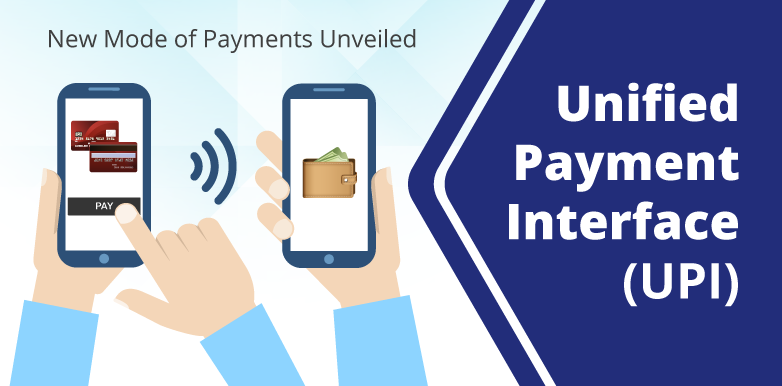-
Introduction: Trading Meets Instant Payments
For Indian traders, the most frustrating part of trading isn’t always the red candles or market crashes—it’s waiting for funds to reflect, delayed settlements, failed bank transfers, or T+2 withdrawal cycles. But what if fund transfers were instant, seamless, and available 24/7? That’s not just wishful thinking anymore. Welcome to the era of UPI-powered trading platforms.
As UPI (Unified Payments Interface) reshapes digital payments in India, the big question arises—is UPI integration the future of trading platforms? Will instant payments become the new standard for brokerages and retail traders?
Let’s dig deep into this transformation and what it means for traders, brokers, fintechs, and the future of India’s financial markets.
-
What is UPI & Why It Matters to Traders?
UPI is a real-time payment system developed by NPCI that facilitates inter-bank transactions instantly via mobile devices, without needing traditional IFSC codes or bank details.
🔸 Instant transfers 24/7—even on weekends and holidays
🔸 No need for net banking or card authentication
🔸 Available via apps like Google Pay, PhonePe, Paytm, BHIM, etc.
🔸 Increasingly used by brokers for funding and withdrawals
For traders, UPI offers the missing piece of convenience and speed, especially in volatile markets where every second counts.
-
The Traditional Way: Broken and Delayed
Before UPI, transferring funds into your trading account usually involved:
🔸 Logging into net banking
🔸 Waiting for payment gateway verification
🔸 Bank downtime or delay in crediting funds
🔸 Withdrawals taking 1–2 working days (T+1 or T+2 cycles)
🔸 Dependency on office hours or banking days
These bottlenecks could cost retail traders big—especially if the market opportunity was time-sensitive.
-
How UPI Integration Changes the Game
🔸 Instant Fund Transfers
You can now deposit funds into your trading account using UPI in real time. Whether it’s 9 AM or 9 PM, your funds reflect within seconds.
🔸 24/7 Market Accessibility
Some platforms even allow UPI-based deposits on weekends or after-market hours, making your capital flexible and always ready.
🔸 Lower Transaction Costs
Unlike IMPS/NEFT which may have ₹5–₹15 charges per transaction, UPI is mostly free or charges negligible amounts, especially for retail traders.
🔸 Faster Withdrawals
Many brokers are working on UPI-based payout systems, allowing same-day or even instant withdrawals—something unthinkable a few years ago.
-
Which Trading Platforms Offer UPI Integration?
| Platform | UPI Deposit Available | Instant Withdrawals | UPI Payment Flow Type |
|---|---|---|---|
| Zerodha | ✅ Yes | 🚫 No | QR/UPI ID |
| Groww | ✅ Yes | ✅ Yes | UPI Mandate + UPI ID |
| Upstox | ✅ Yes | 🚫 No | QR code, UPI ID |
| Angel One | ✅ Yes | 🚫 No | UPI ID entry |
| Dhan | ✅ Yes | ✅ Yes (₹ withdrawal) | Built-in gateway |
| Fyers | ✅ Yes | 🚫 No | Razorpay, UPI |
🔸 Note: Not all brokers allow UPI for withdrawals yet, but the trend is shifting rapidly toward real-time pay-ins AND pay-outs.
-
Advantages of UPI Integration for Retail Traders
🔸 Speed & Convenience
No more worrying about bank hours, cut-off timings, or IFSC codes. A simple UPI payment gets you trading-ready instantly.
🔸 Improved Risk Management
When stop-loss hits or margin calls occur, UPI lets traders add funds quickly to maintain positions.
🔸 Democratizing Access
First-time investors or students without net banking or cards can start trading via just a UPI-linked bank account.
🔸 Better Capital Utilization
With faster deposits and withdrawals, traders can rotate capital more efficiently, making UPI especially beneficial for intraday traders.
-
Challenges & Limitations of UPI in Trading (For Now)
🔸 Transaction Limits
Most banks cap UPI transfers at ₹1 lakh per day, which can be restrictive for high-volume or derivatives traders.
🔸 No Scheduled Transfers
Unlike net banking, UPI doesn’t offer scheduled fund transfers—limiting pre-set allocations.
🔸 Platform Dependency
Not every broker supports real-time withdrawal via UPI. Payouts are often still routed through IMPS/NEFT.
🔸 Tech Glitches & UPI Downtime
On rare occasions, UPI servers (NPCI or banks) may face downtime or delays, causing panic during market hours.
-
How SEBI & NPCI Are Pushing for UPI Integration
SEBI has been actively pushing for frictionless investor experience. Recently, SEBI mandated UPI usage for IPO applications via ASBA. This has increased investor participation massively in retail IPOs.
Meanwhile, NPCI is working with brokerages and fintechs to scale up UPI for:
🔸 Stock trading fund transfers
🔸 Mutual fund SIPs
🔸 Real-time settlements
🔸 Intermediary-free digital transactions
The aim is to create a robust, UPI-centric investing ecosystem that’s fast, secure, and inclusive.
-
UPI in Trading: Use Cases Beyond Stocks
UPI isn’t limited to just equity fund transfers. Traders are now seeing UPI integrated across:
🔸 Crypto platforms (e.g., CoinDCX, CoinSwitch*)
🔸 Mutual fund investments (Groww, Zerodha Coin)
🔸 Commodity and currency trading
🔸 Smallcase investing
🔸 SIP-based wealth-building models
(*Note: RBI and NPCI have taken a cautious stance on UPI use for crypto after 2022; access is variable.)
-
Is UPI the Future of Trading Platforms in India?
Short answer: Yes—with a few conditions.
UPI is on track to become the backbone of financial transactions, and trading is no exception. Its speed, accessibility, and cost-effectiveness make it a natural fit for India’s rapidly digitizing investing ecosystem.
But for UPI to fully become the de facto standard for trading, a few things need to happen:
🔸 Increase in transaction limits beyond ₹1 lakh/day
🔸 Real-time UPI-based withdrawals across all brokers
🔸 UPI mandates for recurring SIPs in stocks and ETFs
🔸 Standardized UPI integration across all platforms (like UPI AutoPay)
-
Conclusion: The Trading Revolution Is Just a UPI Tap Away
UPI is not just changing the way we pay—it’s transforming how we invest and trade. From funding your account instantly to executing trades without friction, UPI integration is solving real-world problems for Indian traders.
As technology matures and regulators adapt, UPI is poised to become the lifeblood of Indian trading platforms, putting power in the hands of the smallest retail investor.
So, the next time you hit a breakout trade or see a dip worth buying—don’t let payment bottlenecks stop you. With UPI in your toolkit, your money moves as fast as your strategy.




